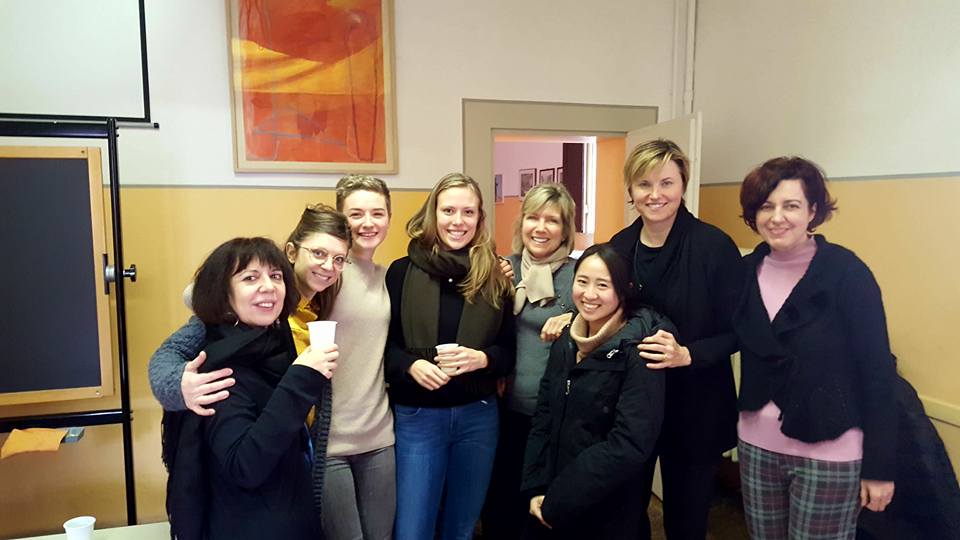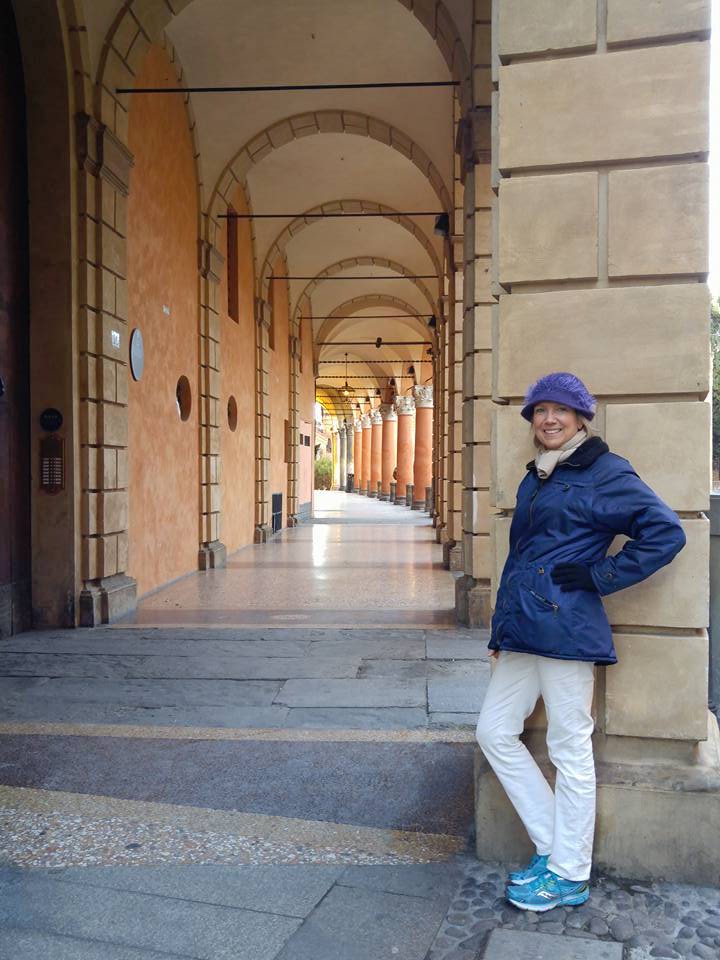For those searching for a way to enjoy a foreign country in a mode other than vacation, language immersion provides the perfect – and often profound – way to discover a new culture and communicate with local hosts. In fact, language immersion school is the solution for a variety of travelers and learners.
Having learned Italian 30 years ago, and knowing that I wanted to somehow live or work in Europe for the next several years but lacking any fluency, I chose to anchor myself in Bologna, Italy, for six months of language immersion.
(Note: For U.S. citizens, any stay over 90 days in Italy requires a study visa.)
Finding a language school was no simple endeavor (more on that in my next post), but once found, everything else fell in place – length of stay, lodging, and the study visa. I also found it a relatively inexpensive way to travel: per week, language courses are approximately 230 euros and accommodations with a family 120 euros.
Where else can you stay for 350 euros per week and walk away with a new or enhanced skill?
Since arriving in January, in addition to learning 10 new verb tenses and innumerable grammatical and vocabulary constructions, I have discovered an amazing, historic city and environs ― sans the throngs of tourists found elsewhere in Italy ― and have met and made friends with students of every age and walk of life from five continents.
Some of these friendships are deeper and more intense than others, but each of them has provided a window into other cultures, and each comes with a reciprocal invitation to visit our respective homes and countries of origin.
Also, I was fortunate to have landed with a warm and generous host “mother” (she’s younger than I am) and her teenage son, both of whom make up my local family, replete with language practice and correction (thank goodness), a relaxing coffee together each morning, local tips and many laughs.
At my language school, Cultura Italiana, in Bologna, Italy, most students this year have been from Europe. In January, the majority of students were much younger than my 50-plus years: some were doing their gap year, others preparing to enter an Italian university, others hoping to meet requirements to work for companies such as Lamborghini.
Recently however, the student population has more closely approached (or exceeded, with retirees) my age group. It’s always a fun mix, and each group each day readily shares a review of their most recent excursion or discovery.
Here’s how language immersion can help with the details not only of learning but of crafting a vacation of sorts with built-in friends and cultural benefits:

LANGUAGE SCHOOLS PROVIDE READY-MADE FRIENDS. (PHOTO BY NANCY WELLENDORFF CHURCH, CENTER IN GRAY SWEATER.)
Single traveler
With classes of 6 to 12 students, most of whom have also arrived “solo,” language school provides a ready-made circle of friends. Intensive classes, typically lasting four hours per day and comprising two hours of grammar lessons and another 1.5-plus hours of conversation in which students interact with each other over exercises, word games, book reviews, discussions of news and culture, are ideal for finding a variety of friends and companions to discover your new host city and all its temptations. Schools typically organize at least one social event a week and two cultural lessons or excursions in which students can also discover new friends with common interests.
Indecisive traveler
For those unsure about how long to stay in a city or country, or in which part of town to stay or how to find appropriate lodging, language schools answer all of these questions.
• Length of study – Again, intensive classes last a minimum of one week, so for the itchy traveler, this might be one stop among many. However, many short-timers feel a pressure to take in all the museums and restaurants and even nearby towns – in addition to attending school four hours a day – all in one week. A longer stay mitigates this exigency.
- For beginners in any language, one week barely provides enough basics, not to mention the confidence, to communicate with locals. A one-month stay, however, will cover at least two verb tenses and a variety of idioms and vocabulary.
- For the intermediate learner, again, one week barely provides a refresher for any range of topics or tenses. To truly graduate from one level to the next, and with increased confidence, I suggest three to four weeks of intensive study, perhaps augmented with some private lessons to pinpoint specific gaps or areas of interest.
- For the advanced speaker, one week or two of intensive classes may suffice for a “touch up” but private lessons might be the way to go here. The amount of homework is typically the same with both platforms. With private lessons, of course, it’s slightly more difficult to meet other students.
Accommodations
Most schools will arrange lodging, with host/student arrangements ranging from 100-percent private flat to living with a family and sharing a kitchen and bathroom. Unless you have friends or family in the same city, I strongly suggest letting the school find your accommodations.
Here are the advantages of going through the school:
- The rooms/flats are pre-screened by the school and often reviewed by the students, thereby filtering out shady situations.
- These accommodations are typically close to school, within a 15-20 minute walk.
- For 20 euros-plus per day, it’s a great deal!
- With a family stay, there’s a built-in resource for conversation with a native speaker, tips on trains and buses, and for the most fortunate, a nice home-cooked meal every once in a while. With a kitchen option, there’s no pressure to figure out where to eat every night. (For a one-week stay, however, buying groceries is sub-optimal.) Family stays also relieve a palpable loneliness often experienced in a new city.
- If there’s a problem, the school can help resolve it and help find a new flat.
New expat, new job, new city
Many international firms pay for language immersion to help acclimate transferees. According to Cultura Italiana, 32 percent of their students come from firms with newly-minted expats.
Language immersion can kick-start the acclimation process, as well as provide a diversion outside what can often be an intense work schedule or environment.
For several students, Cultura Italiana was one of three or four language schools they’d attended. A bonus benefit of immersion is perhaps discovering your next immersion destination via a suggestion from a fellow student. If you’re looking for an inexpensive way to experience a new city…language schools abound.
But more on that later.
















